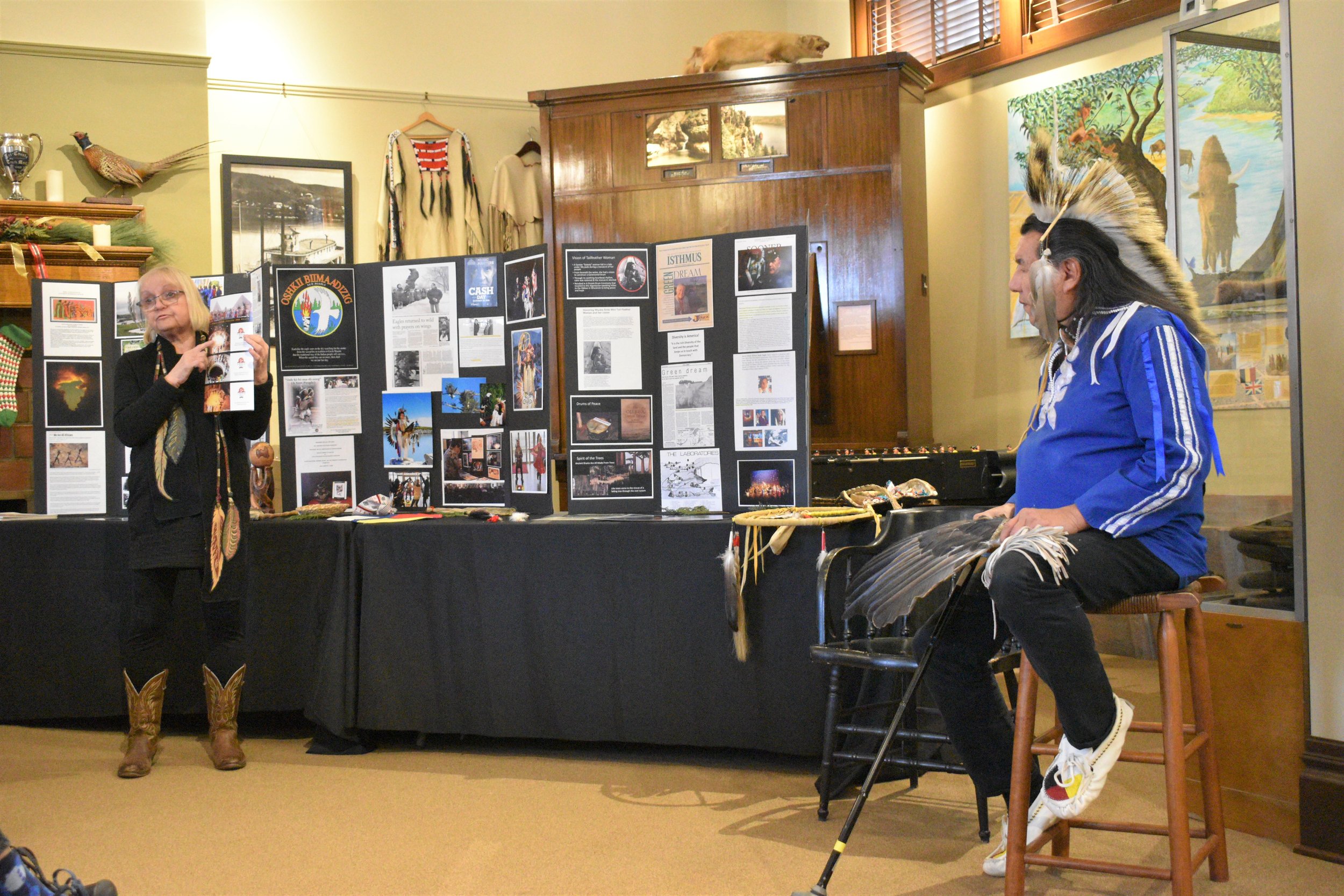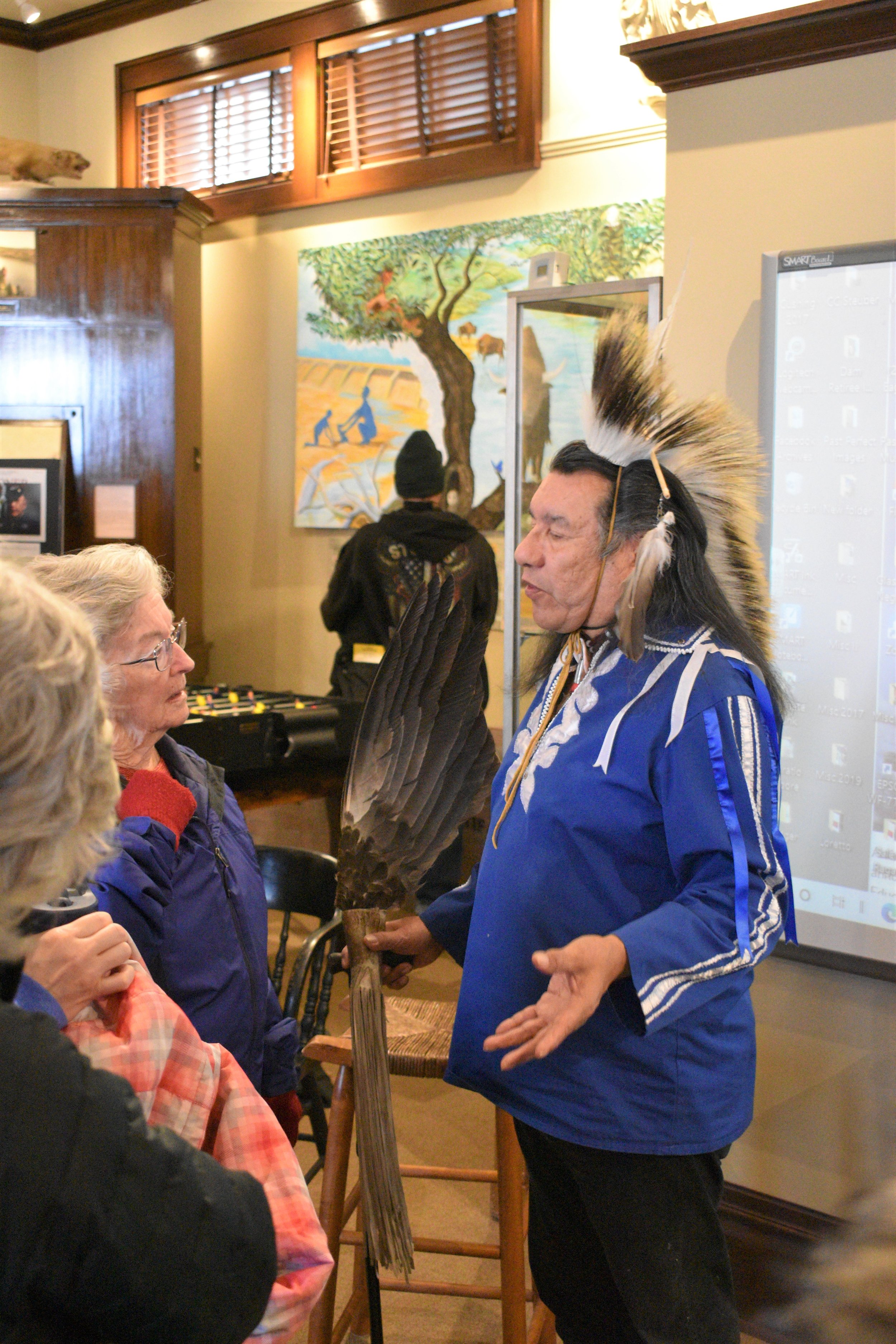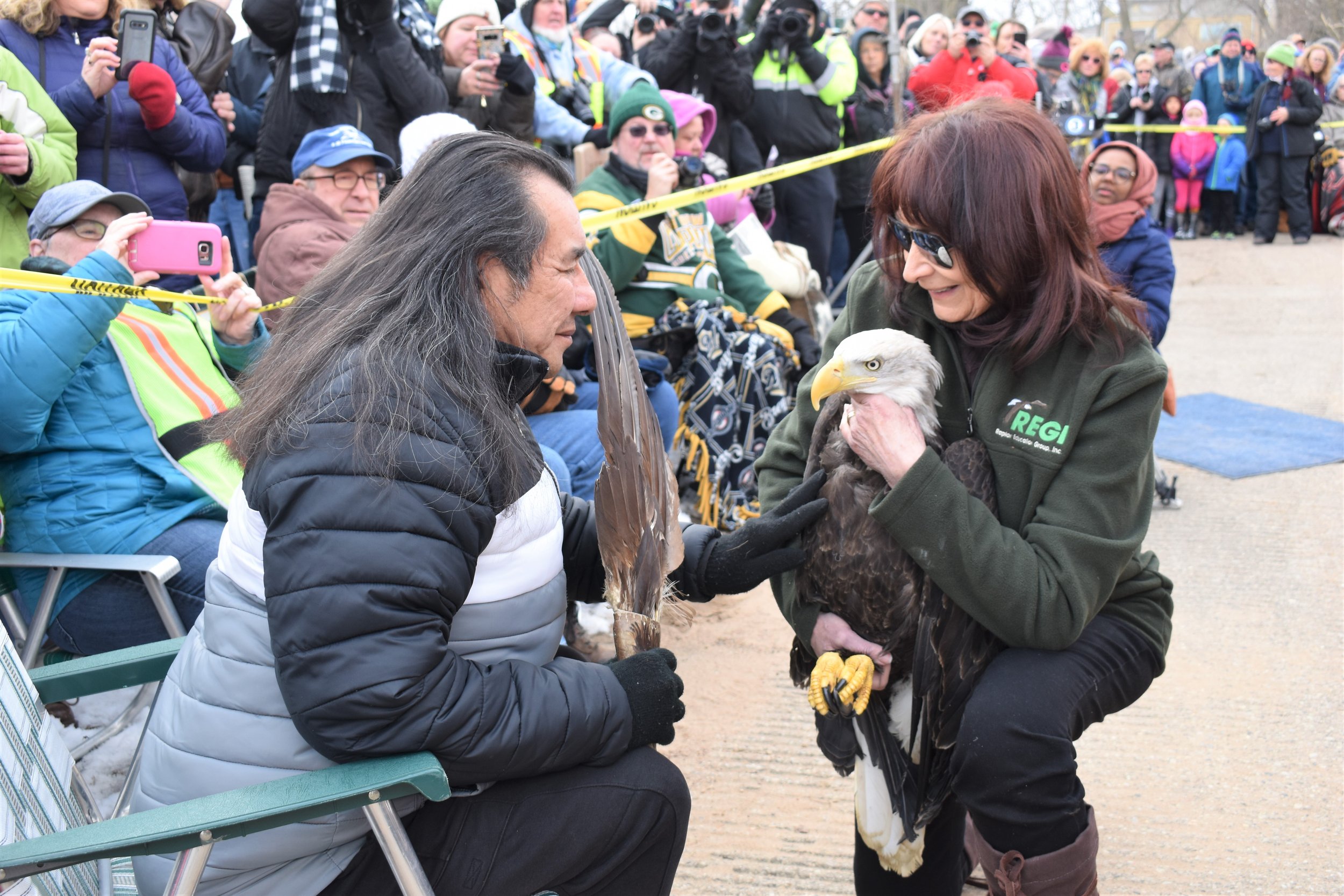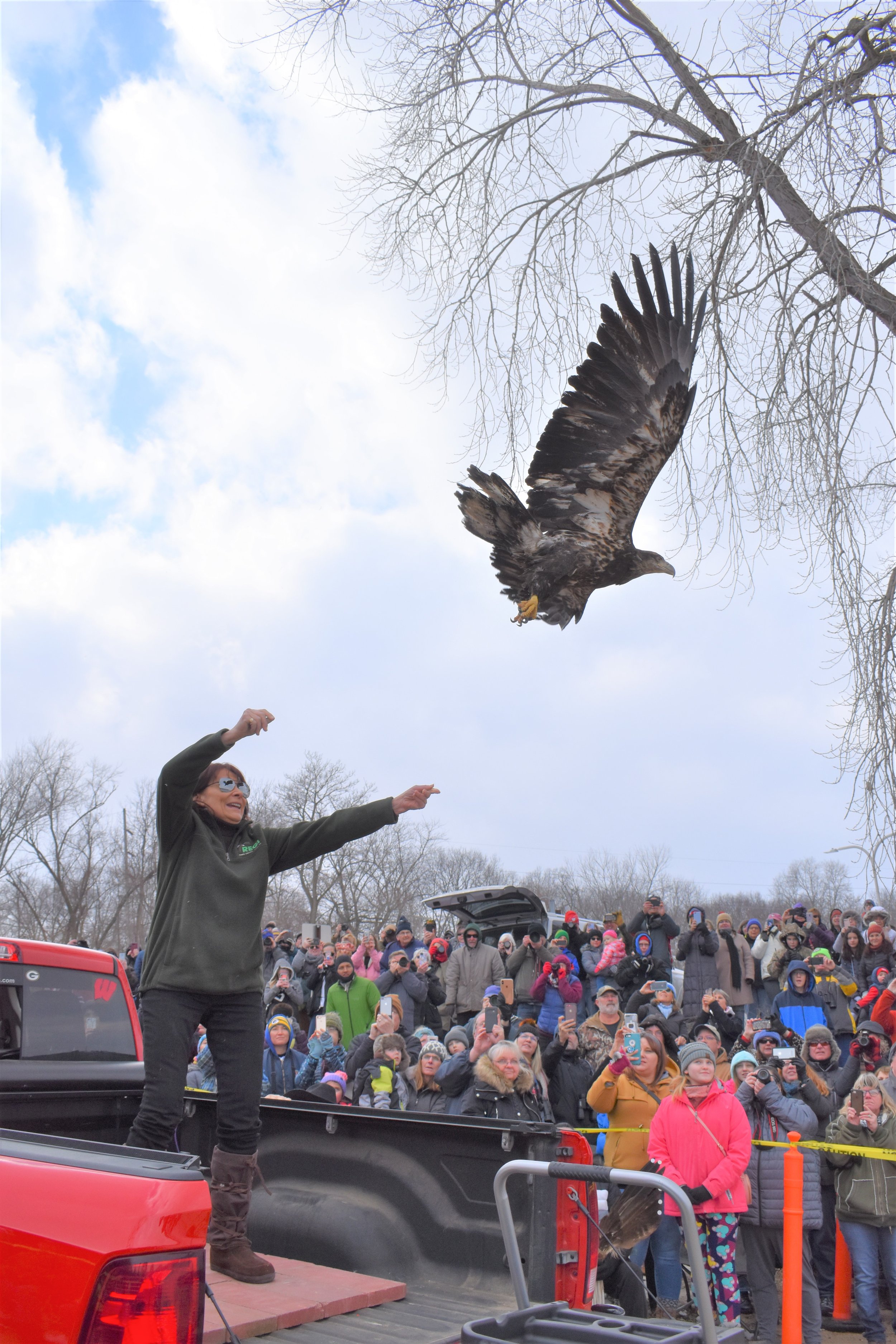Menominee and Potawatomi elder Art Shegonee speaks at Sauk Prairie Area Historical Society
As a part of the annual Sauk Prairie Eagle Watching days, the Sauk Prairie Area Historical Society again welcomed Art Shegonee. Shegonee, a Menominee and Potawatomi activist, dance artist, and educator, has served as an ambassador to Wisconsin Indian Summer that used to be held in Milwaukee, Wisconsin. He is a co-founder of the Call for Peace Drum & Dance Company. A member of the Wolf Clan, Shegonee carries the Native American name Canasa, which translates to Little Golden Eagle.
He is no stranger to educating non-native Americans and Native Americans alike about his culture, and accompanied by his wife Dawn, spoke on his culture and the importance of the Eagle to Native Americans.
Shegonee has played an important role in the Eagle releases in Prairie du Sac by the Raptor Education Group Inc. (REGI) for over 15 years. Executive Director Marge Gibson, and Director of Rehabilitation Audrey Claire Gossett facilitate the Eagle releases after Shegonee blesses the birds.
“As Native Americans, when we do our prayers and ceremonies, we have a sacred fire. Eagles are messengers for us. When we use sage and make smoke, the smoke goes up into the sky and the heavens, carrying our prayers, blessings and good thoughts. When we see the eagles flying around, they're carrying our prayers. The eagle carries that smoke upon their wings and they fly higher and higher. It is said that when the eagle goes up into the heavens, they touch the Creators face with their wing tips. And so that's why we build that connection to the Creator. And that doesn't mean that you're going to get your answers right away,” he said with a chuckle, and added, “that’s where the patience comes in.”
Shegonee presents, has danced, and gives talks across Wisconsin, the country, and as far away as the pyramids at Giza, with a drive to bridge the knowledge gap on Native American culture. He described what drives him by saying, “Part of it, we have to keep letting people know about our culture or history. We continue to teach other people to respect us, to help us, and to let them know that we're still here. We're still people, our culture, our history, and spirituality. It's something that they'll never be able to take but they want to learn about. So why not teach them in a good correct way and let them know we're never gonna go away. We've been here for 1000s of years, so you might as well get with the program and learn about us and respect us because That’s how we have to do [sic], by teaching and respecting each other. And even if they don't respect me, at least I’ve given the message that we're still here, we're not going anywhere, and we have a lot of knowledge. If you want it, you're gonna have to come and ask for it in the right way”.
Shegonee acknowledged that everything he does would not be possible without the help of his wife. “I can't do it without her, a lot of things I can't do today. You know, I suppose I could do it, but it won't be as good as it is with her help. We can make it together.”
He plans on educating and passing on his knowledge as long as he is able. He shared that his daughter, granddaughter, and others want him to teach them the culture and history.
When asked what he receives when educating others whether Native or non-Native, he responded, “Friendship, memories, being needed and belonging. Stories still need to be told, you know, if people are willing to listen”.
Shegonee, citing the recent losses of some tribal elders, stressed the importance of not taking each other for granted. “We take it for granted. You know, that we're always going to be here. And so, my message to all of you and your children, if you have elders or if you have somebody in your life that's in a nursing home, don't forget about them. Don't forget about them. Take part and be with them as much as possible, get those stories, because sometimes you never know when they're gonna go. Then when they go, they take wisdom or knowledge, and you might be like, ‘oh, I wish I would have listened to better, I wish I would have recorded that’”.
Shegonee is a traditional dancer and has danced many years in pow-wows throughout Wisconsin. He has performed as lead dancer for the Native American Music award-winning (NAMMY) Native American Contemporary Brulé, as head male dancer for the University of Wisconsin-Madison pow-wow, as well as with folk singer Bill Miller and musician Michael Jacobs. Shegonee has served as the Affirmative Action consultant for Tellurian UCAN, and as director of the former Native American Resource Center. He is also a certified instructor of Nonviolent Crisis Intervention for the National Crisis Prevention Institute, Inc., a former member of the EOC Citizen Ad Hoc Committee on community race and ethnic relations and a member of the Greater Madison Leadership (LGM). Shegonee has also acted in several film productions, including Rush for Grey Gold. Honored for his continued commitment to Native American education, in 1995 the Wisconsin Historical Society honored Shegonee by including his image in their permanent exhibit, “People of the Woodlands: Wisconsin Indian Ways,” examining the history of Native American culture. He has been a cultural consultant, teacher and presenter at over 300 schools throughout Wisconsin and neighboring states. Shegonee joined Call for Peace as a founding member and lead male traditional Native American dancer in 1990. (http://callforpeace.org/)








